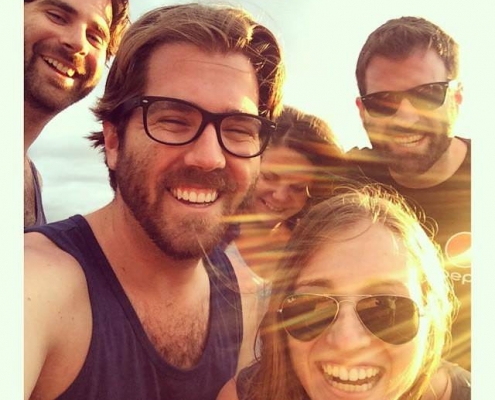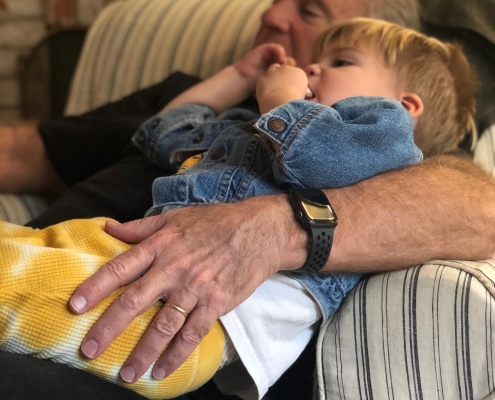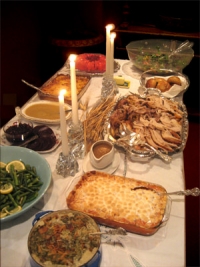
One Foot In Front of the Other
It's hard to be happy all of the time.
People say I’m an optimist… and, by most accounts, including my own, I would have to agree. Some days however, getting out of bed is not something that I look forward to. On those days, life is…

United We Go – Up Up and Away
I’ve got a lot bouncing around in my head lately, and although it's about our country, very little of it has to do with Washington. Fact is, I think it has something to do with what I see as the state of our "United" States.
Is Dr. Dao of…

Building A Happy Family – 3 New Lessons
Even though I've written a book about parenting, the process of building a happy family continues to evolve, and after raising four children over a period of thirty-six years, there are a few things that stand out as lessons learned. Here…

Grandparenting
Well. It happened. We became grandparents at the end of December.
Of course, nothing went according to plan. We were expecting this grandson after The Holidays - in early January - right about now. We were mentally preparing…

Prescription For a Happy Thanksgiving
There’s been a lot of complaining going on recently… the unknown (election), the weather (extreme), the world (wars, immigration, Brexit).
It’s so bad even Kanye can’t handle it.
But tomorrow is Thanksgiving, and earlier today I decided…

Tyrants, Toddlers, and Trump
I know a number of people who have toddlers that they describe as “difficult.”
These children have been complicated from the start. As tiny tyrants, they’ve spit out their food, pounded the table, or thrown tantrums unabated…

Our Son Says “We’re Pregnant!”
Our son Ben recently called and said “We’re pregnant!” JoAnn, my wife, was very quick to point out that Ben’s wife, Kelsie is pregnant and that they are having a baby. After all, JoAnn asks, “Is Ben nauseous all the time?” “Are…

38 Years Later…What’s the Marriage Secret?
Today my wife, JoAnn, and I are celebrating the thirty-eighth anniversary of our marriage. I’m not bragging… frankly, I’m amazed.
Everyone asks, “What’s the secret?” I'll attempt to explain in a moment.
Now that we have grown…

The Evolving Dad
We’re evolving – all of us – and so is our world, or should I say “our worlds” as each of us is surrounded by our own experience.
As society has shifted away from the “good ‘ol days” (a “Madmen” episode filled with smoke…

The High Cost of Bad Parenting
I believe that most parents are good parents. It’s my observation that a majority of our citizens are well-behaved, respectful, and law-abiding. But I also see a society that devotes an immense amount of energy and resources to deal with…
